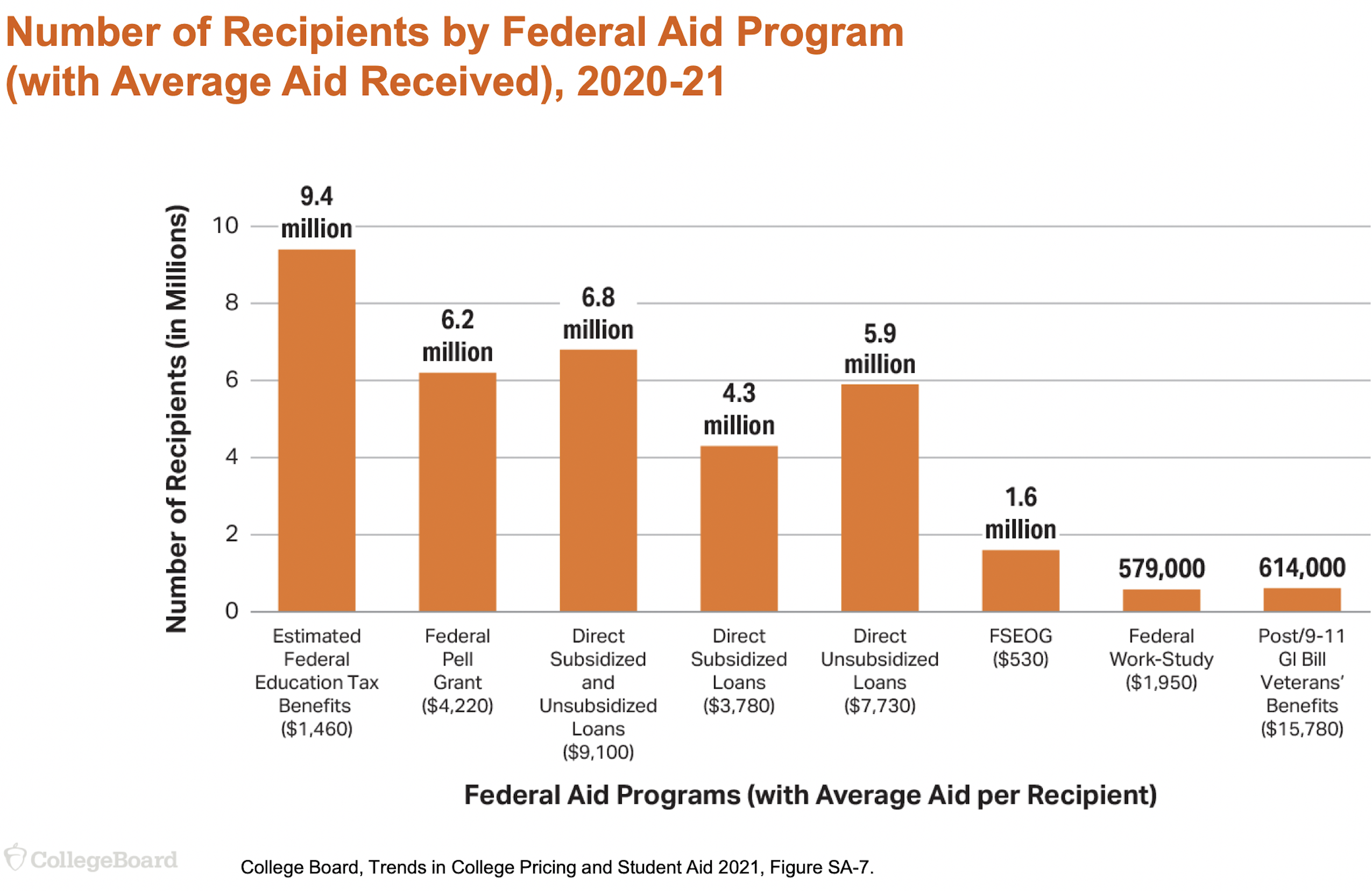Federal student aid is an essential element in the nation’s economic growth and prosperity, enabling low- and middle-income students to attend college and current workers to retrain for new careers.
Robust support for federal student aid is key to strengthening the nation’s skilled workforce, innovative capacity, and economic competitiveness. The federal government has long played a pivotal role in ensuring individuals from all backgrounds are able to pursue their postsecondary education goals. That commitment has helped previous generations afford college and attain their educational and career goals. Strengthening this commitment is now even more critical since nearly all new jobs created in our economy require some postsecondary education.

Federal student aid is an essential element in the nation’s economic growth and prosperity, enabling low- and middle-income students to attend college and current workers to retrain for new careers. For FY23, AAU urges Congress to double the maximum Pell Grant award to $13,000 - an important step in reclaiming the original purchasing power of the Pell Grant.
The Congressional Budget Office estimates that more than 7 million students will use Pell Grants in the coming academic year to help finance their education.
AAU urges Congress to double the maximum Pell Grant award to $13,000.
AAU urges Congress to provide increases for other federal student aid programs that provide much-needed grants and work-study to low- and middle-income students, improving their chances of graduating. For FY23, AAU recommends the following:
• Supplemental Educational Opportunity Grants (SEOG): $1.090 billion to provide targeted, need-based grant aid of up to $4,000 per student to 1.6 million students. Increasing funding to $1.09 billion in FY23 would restore the programs to pre-sequester levels, adjusted for inflation.
• Federal Work-Study: $1.52 billion. Federal Work-Study has been shown to positively impact a student’s ability to afford college and to improve their chances of graduating. Increasing funding to $1.52 billion would restore the programs to pre-sequester levels, adjusted for inflation.
• Federal TRIO Programs: $1.307 billion. TRIO programs serve nearly 800,000 students through almost 3,000 programs. Increasing funding to $1.307 billion would ensure support for students in need and for those disproportionately impacted financially by the COVID-19 pandemic